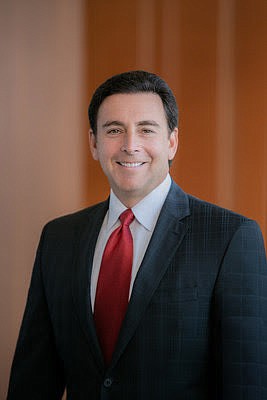- April 5, 2025
-
-
Loading

Loading

ESTERO — Mark Fields, former president and CEO of Ford Motor Co., has been named interim CEO of The Hertz Corp., the third person to hold the title at the troubled rental car giant in the past two years and the seventh in the past six years.
Fields, 60, has taken over immediately according to a filing with the Securities and Exchange Commission. Paul Stone, who’d had the job since last year, assuming the role just days before the company filed for bankruptcy, will remain as president and COO. Stone also lost his seat on the Lee County-based company’s board.
Fields, who joined Hertz’s board in June as the company exited bankruptcy, will stay in the position as the company searches for a permanent replacement for Stone. According to the SEC filing, he will earn $62,500 per week as a base salary and receive some stock options.
Hertz, in a press release, couched the move as “part of a vision for an all-new Hertz that combines the iconic company’s brand strength and global fleet management expertise with new technologies and innovations charting a dynamic, new course for travel, mobility and the auto industry.”
In reality it’s just the latest shake up in leadership for a company that just emerged from bankruptcy four months ago and is looking to regain its footing after restructuring.
And for Stone, it’s a public step down on the corporate ladder after leading the company through the bankruptcy process and the early days of its new life.
Stone was named president and CEO of Hertz just four days before the company filed for Chapter 11 bankruptcy May 22, 2020. He replaced then president and CEO Kathryn Marinello on May 18. At the time, he was vice president and chief retail operations officer at Hertz, and in the new position shepherded the company through its darkest days.
In the press release, the company says he will work hand-in-hand with Fields to “ensure a strong focus on operations and customer service excellence.”
“The Hertz Board is deeply grateful to Paul for his service to the company during the restructuring process,” says Greg O'Hara, Hertz’s chairman of the board. “We were delighted that Paul decided to continue working with Hertz in a senior leadership role.”
According to the SEC filing, if Stone remains with Hertz until March 1, he will get a lump sum payment of $2 million. In addition to the payment, Stone will now continue to receive his $1 million per year salary and remain eligible for an annual bonus of 140% of his salary. The company also waived a clawback condition that came with a $1.4 million retention bonus he received in August.
Three other executives received retention bonuses, though for lesser amounts.
Stone was also asked to sign non-compete and confidentiality agreements, according to the SEC filing.
Fields, who is also a senior advisor at TPG Capital, was Ford’s president and CEO for about three years. According to published reports out of Detroit at the time of his departure, Ford was pressured by shareholders to replace Fields because the company’s stock dropped 40% during his tenure — despite the company’s profitability.
He is now taking the helm of a company, even though it may be for a short term, that faces the reality of transforming itself in an industry that is seeing not only changing consumer habits and continued travel restrictions but vehicle shortages.
O’Hara did say in the press release that Fields’ “extensive background in auto and technology will be critical as we remake Hertz for the future.”
“We are building from a renewed position of strength to reimagine the future, and Mark's continued leadership on the board and stepping in for the moment as interim CEO are important next steps to take us there.”
The bankruptcy, while being disruptive, did allow the company to come out on sounder financial footing.
Hertz exited bankruptcy June 30 with $5.9 billion in capital, its debt load reduced, a new ticker symbol and a new board of directors. It's now traded on the over the counter market, under the symbol HTZZ.
It left the protection of the bankruptcy court with about $5 billion in debt gone, including all of its European debt, and with a $2.8 billion credit line and $7 billion in financing for its vehicle inventory.
Investment firms Knighthead Capital Management, Certares Opportunities and Apollo Capital Management are among those providing capital to fund the exit plan.
But analysts said at the time that without changes to the business model it would be difficult for Hertz to survive long term. This despite the company blaming the downturn in tourism due to the pandemic for most of its troubles, even though it was the only rent-a-car giant facing identical troubles to have to file.
According to its initial Chapter 11 filing, Hertz had $25.8 billion in assets and $24.3 billion in debt on March 31.
Court records show that from March 21 through the day the company filed for bankruptcy, May 22, 2020, daily reservations fell 90% as sales at its retail lots nearly vanished and millions debt payments came due.
To help offset the downturn, the company consolidated leases at off-airport sites in the U.S. and Europe, cut back on the purchase of new vehicles and cut employees.
According to court records, the “workforce cost management” began in March 2020 with furloughs. The hope was they’d be temporary, but by April it had become clear to Hertz that the shutdown “would not be a transient interruption in its business.”
By May 22, the day the company filed for bankruptcy, 21,000 employees had been affected by the moves with about 14,400 permanently losing their jobs.